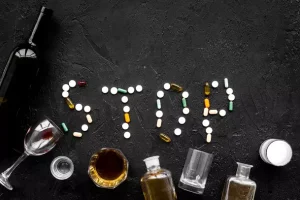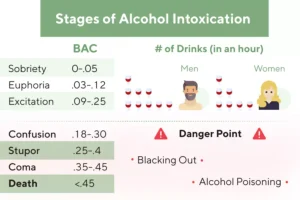
In both NPD and AUD, childhood trauma — including abuse and neglect — may be a risk factor. Further research into the causes of AUD might help experts develop more treatment options. If you think that you or a loved one has NPD or AUD, knowing the symptoms can help you better understand both conditions.
- If you have NPD and AUD, finding support can be challenging because they are two separate disorders with two separate treatment approaches.
- While narcissists may become emotionally dependent on others, they don’t become addicted to people in the same way that they become addicted to drugs or alcohol.
- Recognizing the need for intervention is the first step towards a path of recovery and healing.
Overlapping treatment options
- Grandiose narcissism was also a significant predictor of a positive alcohol problem evaluation, over and above alcohol use, social desirability and vulnerable narcissism.
- By recognizing the unique challenges faced by those struggling with an alcoholic narcissist dynamic, interventions and treatment options can be tailored to promote healing, personal growth, and recovery.
- Avoid enabling the alcoholic narcissist’s destructive behaviors by refusing to make excuses for their actions.
- Our approach centers on treating people with the same kindness and respect that we value for ourselves.
In such cases, a person might start to question the diagnosis and abandon treatment altogether even if another condition, such as NPD, actually exists. Even there, they expect special treatment and believe the rules are for others. Instead of taking the time to heal, they look for loopholes in the system, complain about inefficiencies, become single-minded about insurance/costs, and blame others for having to be at rehab. They will often be convinced that they’re entitled to do whatever they want and that their drinking isn’t a problem but a social benefit.
What to Do If Someone You Know Has Both Alcoholic & Narcissistic Traits

Individuals and families affected by NPD and AUD benefit from attending family therapy and support groups. Some studies have shown people diagnosed with NPD respond more positively to therapeutic and social interventions. Often, family therapy reduces the negative effects on children or partners. Pathways Recovery Center uses evidence-based therapy and personalized treatment plans to support clients with co-occurring NPD and AUD.
What’s the outlook for people with NPD or AUD?
Coping with an alcoholic narcissist can be challenging, and setting clear boundaries to protect yourself is important. This may mean limiting your exposure to their behavior or seeking support from friends and family. Being in a relationship with an alcoholic narcissist can be challenging and emotionally draining.
Narcissism as a Risk Factor for Alcoholism

They may pretend to be nice for a short while to get other people to leave them alone. Even if their behaviors hurt others, alcoholics do what they feel they need to continue drinking. Furthermore, alcoholic narcissist has an exceptionally difficult time admitting that they have a problem. In general, narcissists don’t like narcissism and alcoholism to accept responsibility for what they say and do. When they abuse alcohol and develop a dependence on drinking, they may not accept or admit that there’s anything wrong with their life. Alcohol is sometimes used as a maladaptive coping mechanism to help people with NPD manage insecurities and emotional discomfort.
Treatment options for narcissistic alcoholics

Dealing with an alcoholic is demanding, and coping with a narcissist is far from easy, so when you combine the two, you have a real challenge. While on a drinking binge, a narcissist may start fabricating stories to secure the attention and sympathy of those around them. How narcissists behave when they drink depends on the individual and who they’re with.